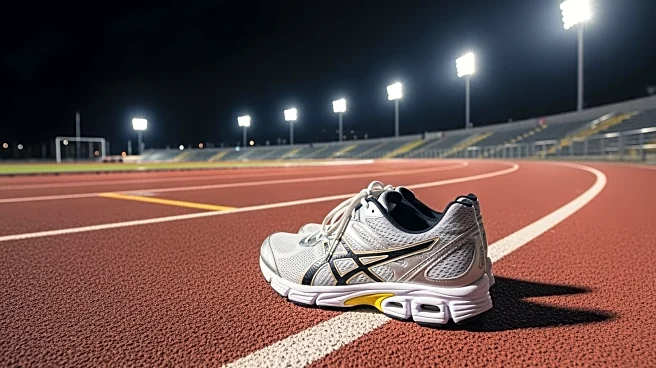What's Happening?
Natalie Grabow, an 80-year-old grandmother from New Jersey, made history by becoming the oldest woman to complete the Ironman World Championship in Kailua-Kona, Hawaii. Despite facing challenges such as rough waves and intense humidity, Grabow finished
the triathlon, which includes a 26.2-mile run, 112-mile bike ride, and 2.4-mile swim, in 16 hours, 45 minutes, and 26 seconds. Her achievement underscores the importance of staying active and consistent in physical activities, regardless of age. Grabow attributes her success to rigorous training, mental resilience, and constant self-evaluation during the race.
Why It's Important?
Grabow's accomplishment serves as an inspiring example of the potential for physical fitness and endurance at any age. Her story highlights the benefits of maintaining an active lifestyle, which can lead to improved physical and mental health. As the population ages, stories like Grabow's may encourage older adults to engage in regular exercise, potentially reducing healthcare costs and improving quality of life. Her achievement also challenges societal perceptions of aging, demonstrating that age does not necessarily limit one's ability to pursue demanding physical challenges.
What's Next?
Following her historic achievement, Grabow plans to take a week off for recovery before considering future Ironman races. Her next goal may be to match the record set by Madonna Buder, who completed an Ironman at age 82. Grabow's continued participation in such events could further inspire older individuals to pursue fitness goals and challenge age-related stereotypes. Additionally, her story may prompt discussions on the importance of tailored training programs for older athletes, emphasizing safety and gradual progression.
Beyond the Headlines
Grabow's journey underscores the interconnectedness of physical and mental strength, suggesting that regular exercise can enhance confidence and resilience. Her story may encourage a broader cultural shift towards valuing lifelong fitness and wellness, promoting activities that support both physical and mental health. As more individuals embrace this mindset, it could lead to increased demand for fitness programs that cater to older adults, fostering inclusivity and diversity in the fitness industry.
















